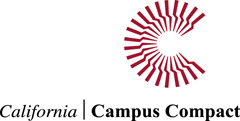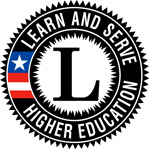The Stanford Commonwealth Challenge catalyzes students to self-organize and lead change that contributes to the public good—to our common wealth. Each year the Haas Center works with faculty and community partners to identify and issue at least one challenge related to specific, concrete measurable goal.
Our hope is that students respond to the Stanford Commonwealth Challenge and leverage the intellectual, financial and human resources at Stanford to do something incredible. While the Haas Center provides support—meeting space, advising, training, connections to relevant faculty/courses, and some seed funding—the response must be student-directed and student-driven.
Commonwealth Challenge Criteria
A Commonwealth Challenge goal is a single, focused goal that responds to a compelling, timely problem that
- is achievable, measureable results within two years
- addresses a significant community need or priority
- can be summarized in one sentence
- has a compelling story (i.e., 60-second anecdote of how the solution will improve someone’s life or contribute to the public good)
- has a measurable outcome - the results and final goal can be quantified and succinctly stated in 1-2 sentences
- potentially taps into resources and talents from various domains (an interdisciplinary team will be exploring the problem from a variety of perspectives - engineering, legal, health, financial, etc.)
- may be scalable, or applicable to other situations, and capable of expanding and/or replicating after two years
- is able to be initially funded and produce results with a budget of under $10,000
- enable students to show quantifiable results at 4-month checkpoints throughout the process
- provides opportunities for students to “reverse the rules,” or tackle a problem in unusual ways
- has a natural “stopping time” (as opposed to ‘wicked problems,’ which generally have no stopping rule)
- encourage involvement of other individuals or communities in the cause through a call to action
Stanford students work with community partners, Stanford faculty and staff, and others to collect and review Commonwealth Challenge ideas. Students use a democratic process during 2012 to identify a challenge to respond to by September 2014.
Principles and Concepts
- We believe that the process is important as the product. As students work to accomplish the challenge, we ask that they consider the Haas Center’s Principles of Ethical and Effective Service, which serve as foundational criteria for the competition. In addition to these principles, our work is guided by the following:
- Academic Connections: Identify and seek out relevant faculty within disciplines that will add value to your response to the challenge and deepen your learning about related issues.
- Innovation and Design: Employ new or emerging processes, ideas, technologies, or organizations to solve public problems.
- Entrepreneurship: Perceive and create new opportunities, and to pursue opportunities without regard to the resources they currently control.
- Collaboration: Identify and mobilize the appropriate networks and individuals needed to be successful.
- Cross Sector Engagement: Engage multiple sectors—public/governmental, private, and independent—to solve public problems.
- Multiple Pathways of Engagement: Engage others in multiple public service pathways: direct service, politics/public policy, engaged scholarship, philanthropy, and activism.
- Sustainability: Ensure the effort will be sustainable (in both senses of this word, environmental and longitudinal).
Contact Information
For more information, please contact Tom Schnaubelt.
Supporters
We gratefully acknowledge the following organizations for their significant support in making this program possible.



